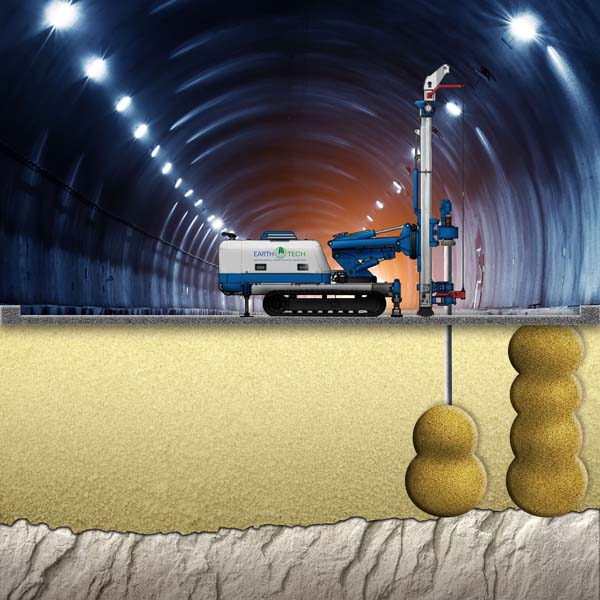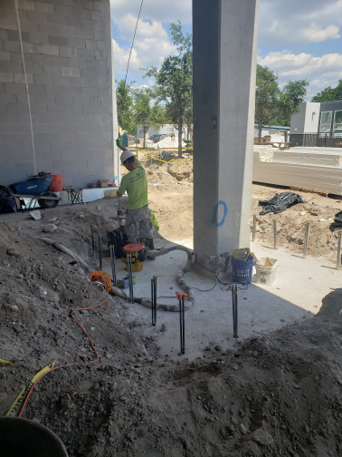
Polyurethane Chemical Grout is injected into shallow soils beneath a foundation that have been loosened by sinkhole erosion or other mechanisms. The Polyurethane Chemical Grout is injected through small steel rods installed five to eight feet below the foundation.
As the Polyurethane Chemical Grout is injected, it fills and fractures weak zones within the soil. Once it is injected, the Polyurethane Chemical Grout expands, further displacing and reinforcing the soil. Expansion can be up twenty times the original fluid volume, depending on the confinement provided by the surrounding soil. The combination of grout filled voids and fractures gives the soil mass an increased resistance to erosion, loosening and settlement. Expansion of the Polyurethane Chemical Grout can also be used to lift lightly loaded structures.

Application
-
Most applications require existing soils to be loose
-
To strengthen soils beneath existing foundations and slabs
-
Leveling of slabs
-
Can be used to control water inflow into buried concrete structures, like sewers and tunnels
Advantages
-
Installed with small equipment
-
Can eliminate the need to replace slabs and other damaged components
-
No need to unearth foundation or slabs

What to expect
- Small holes must be drilled through slabs for interior work
- Monitoring structure for movement
- Monitoring of adjacent utilities for grout inflow








